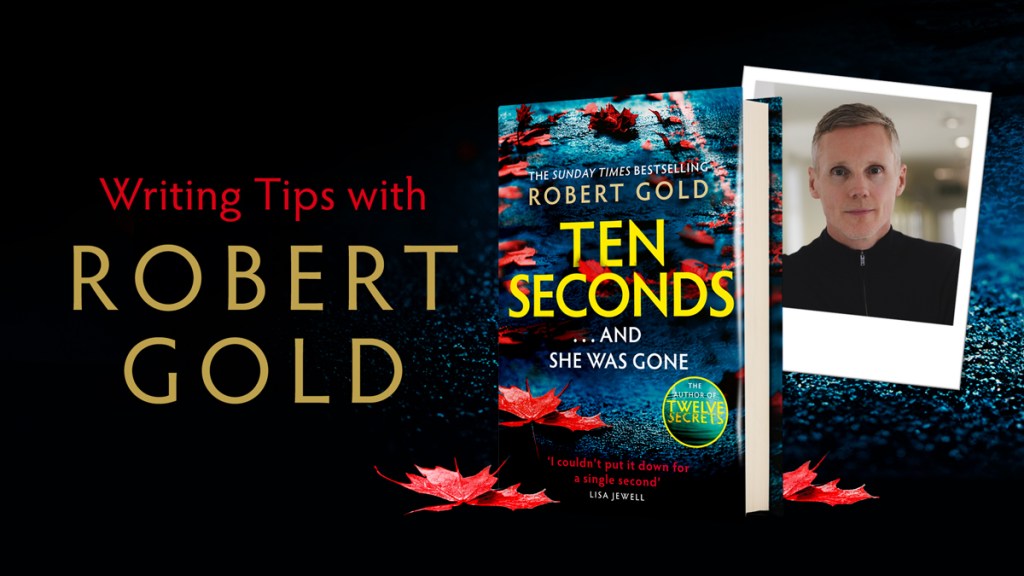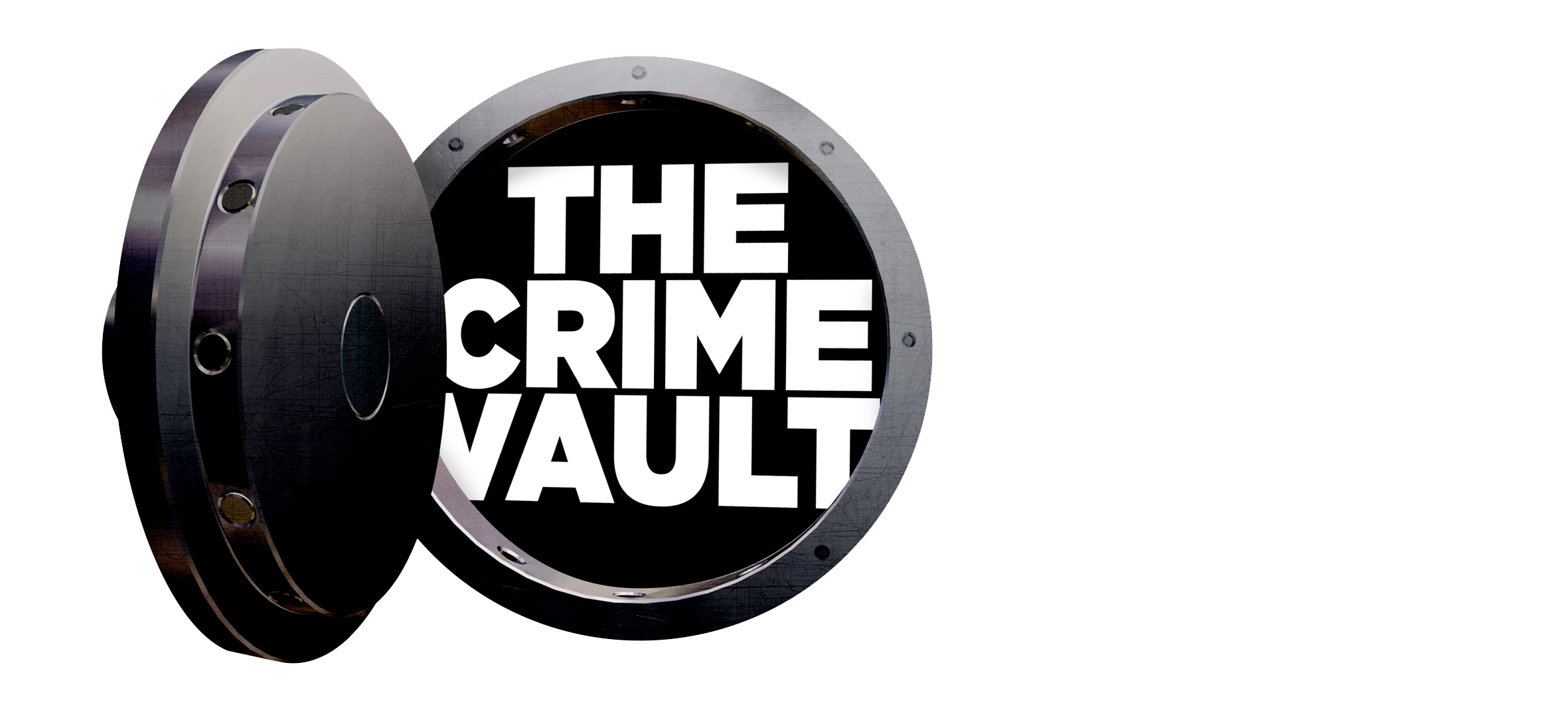
Writing Tips with Robert Gold
The Sunday Times bestselling author Robert Gold exclusively shares his writing tips with The Crime Vault. If you’ve ever wondered about putting pen to paper and writing a thriller then here’s some excellent advice from the author of Twelve Secrets, Eleven Liars and Ten Seconds.
- What made you decide to write a crime novel?
If I think back, the reason I first wrote a crime novel was because I actually thought I could. What I mean by that is like a huge number of writers I’d been plugging away for a quarter of a century thinking I’d love to write but never knowing exactly what. Originally I wanted to be a playwright and somewhere stashed away in a cupboard I have copies of three plays I completed at different times during my twenties. After that I wanted to be a screenwriter and only years later did I actually think I might be able to write a novel. My first effort was the story of a failed romance and broken marriage, a book which lives deep in my bottom drawer! For most aspiring writers life, and the need for a day job, takes over and that was definitely the case for me. But, I kept coming back to the idea of writing and was fortunate enough to pitch as series of three short books to James Patterson and he loved the idea (a series of thrillers set inside the world’s most exclusive hotel chain). After co-writing those, an editor said to me, why don’t you write a crime thriller? I’d always loved crime thrillers but that moment was the very first time I thought I actually could. I had a full time day job but at the start of 2019 I set myself the goal of writing a thriller by the end of the year. By Christmas, I’d finished what was to become my first thriller, TWELVE SECRETS.
- Where do you start – is it with an idea for a crime, a piece of evidence, a character?
TEN SECONDS AND SHE WAS GONE is my third thriller and for each book I’ve had a different starting point. I describe TEN SECONDS as a chase and the heart of the story is a kidnap. The kidnapping kicks off the story and a chase follows in trying to rescue the victim. One discovery leads to another but the kidnap drives the story. A few years ago I read the book RUN AWAY by Harlan Coben which is a brilliantly plotted chase, and right then I thought one day I would love to write a chase book. And so this new book, while the story is very different, is definitely inspired by RUN AWAY.
For my first book TWELVE SECRETS I wanted to write a book where the present day was very much impacted by the past. In the story a past crime comes to have a big impact not the present day and the same is true of all my stories. I think the past has a huge impact on the present (I love history!) so I always try to have a past event impacting on the present day….with hopefully everything coming together in the end!
- What do you find most challenging about writing in the crime genre specifically, and how do you overcome this challenge?
Every book is different and comes with different challenges. I think a good crime thriller is really a puzzle, for the reader to solve or simply enjoy unfolding in front of them. Agatha Christie was the greatest ever proponent of this and all of her stories are brilliantly woven. I try to do the same, seeding the story and leaving ‘crumbs’ for the reader to follow. The challenge is to leave just enough! Equally, all writers want readers to engage with our characters so while a thriller plot may be racing along, a writer always has to remember the reader needs to engage with all the characters and care for them—be it love or hate!
- Do you plot out the whole novel in advance and if so, how do you do this? What tools do you use?
For TEN SECONDS I plotted far more than I have ever done before. With it being a chase and one discovery leading to the next, I needed to work out how our two main protagonists Ben Harper and Sam Hardy move around the country in pursuit of the kidnapper. However, I think the story only comes alive once an author sits down and writes the book. Spending several months writing the story means it is impossible for new and different ideas not to come to mind. Constantly I’m asking myself how a character would respond to certain events and that can only happen once the story is taking shape.
- What do you do if you discover the dreaded ‘plot hole’ half way through?
I’ve been lucky not to suffer this yet—I tend to have too much plot rather than too little! My editor is brilliant and helps me shape the story once I have completed a first draft and she is great at spotting any gaps. Each of my books offers lots of twists and turns, so when I’m writing I tend to live with the plot bouncing around my head almost constantly! In TEN SECONDS there is a big twist which flips the novel on its head half way through. Before I started writing the book I knew I wanted to have that plot twist, what I hadn’t planned was what would happen next! Once I reached that point I had to sit down and plan my route to the end of the story.
- Do you have a strict writing routine or do you write as and when inspiration strikes you?
I’m lucky enough to be writing my books while still keeping my original full time job. While that means I get to do two very different things, it means I have to be super disciplined when I am writing. I don’t have the luxury of waiting for inspiration as I write a book each year, so that means when I am able to write I approach it more like a journalist with a tight delivery schedule that I can’t miss! If you set yourself a deadline to finish by that quickly limits the number of distractions you can accommodate!
- How do you know when you’ve struck the balance of giving the reader enough information to keep them engaged with the mystery, but not so much that they’ll work it all out?
My number one priority in all of my stories is to keep the reader entertained. I want that to happen on every single page. Different readers will pick up on different clues but as long as they are (nearly!) all entertained, I’m happy. Some readers want to work out what happens from the very first page. Others are happy to let the story unfold in front of them. I’m happy with either as long as I can keep them hooked until the last page.
- What are your top three tips to a crime writer wanting to improve their craft?
The best advice I was ever given is ‘get something down.’ By that I mean when a writer writes their very first draft nobody sees it except for them. Keep going with that and get as near to the end as you can without looking back. Only then go back and rework everything. And my second tip is when you do go back don’t be precious, and if something doesn’t work, delete it. After that, enjoy the story you are writing. If you love it and can’t wait to get back to it, it probably means a reader will be rushing back too!
